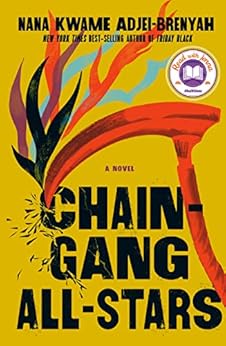
“We can teach our audiences who to view as important.”
This satirical look at how prisoners are regarded is futuristic, but only slightly. The author masterfully illustrates society’s disdain for incarcerated people unless they can provide something that has entertainment value. The story demonstrates how members of the American public value entertainment and sports and rarely consider the importance of participants’ humanity. In this novel, the prisoner athletes are worshiped yet dispensable to society.
The story posits that athletic prisoners can join CAPE, a criminal action penal entertainment program. Groups of prisoners form gangs in CAPE. Each participant has a weapon; two at a time, they fight other teams like gladiators. The objective is to kill one’s opponent since that is the only way to win. The events occur in arenas, and the action is streamed live for enthusiastic audiences and fan clubs.
The author forces us to gain insight into the humanity of the prisoners who partake in these murderous events. Adjei-Brenyah cleverly uses the language of enslavement to emphasize his disdain for using people as commodities. The chain gang system described in this book grooms the gullible American public to view athletically gifted prisoners as momentary heroes who will sacrifice their lives to provide exciting viewing. It is entertainment at all costs, and the events create popular venues for disposing of the undesirables in society.
Some members of the society protest the horrific atmosphere of blood-hungry fans, the addiction to violence, and the horrendous premise of CAPE. However, spectators continually immerse themselves in the murder fests. Sportscasters condition audiences to become enamored with the gladiators and enjoy watching prisoners kill each other. How can things change to prevent more inhumane treatment of marginalized and vulnerable people?


